The End: From Glory to a Whole New Ball Game. Everton 1985-1994
The concluding instalment of Gavin Buckland’s trilogy covering Everton in the Moores era, from the summer of 1985 to 1994 with the Blues in relegation peril

Review of Gavin Buckland's latest book
In the summer of 1986, I attended a surprisingly stormy Everton FC AGM. The Toffees has seen dreams of a league and cup double evaporate – made all the worse by our close neighbours achieving that feat. Then had come the news that Howard Kendall and the board had sanctioned the sale of leading goalscorer Gary Lineker to Barcelona, after just one goal-laden season on Merseyside.
Philip Carter was, as a rule, the consummate meeting Chairman, able to swiftly shut down vocal dissent; however, I vividly recall one irate shareholder stating that we had gone ‘From champions to chumps’. In reply, Howard Kendall, sought to offer reassurance that, in spite of signing no replacement for the prolific England marksman, the Toffees could win more silverware. A year later, the league title had, indeed, returned to Goodison Park, but the mastermind of this considerable achievement had boarded a flight to Bilbao. From there on, it was a gradual, if not linear, seven-year slide to the edge of catastrophe.
The above came back to mind when reading The End, the concluding instalment of Gavin Buckland’s trilogy covering Everton in the Moores era, from the summer of 1985 to 1994 with the Blues in relegation peril. The title is a knowing nod to the conclusion of the Moores era at Everton, plus to the iconic Merseyside magazine of the same name.
As with preceding instalments, Money Can’t Buy Us Love and Boys From The Blue Stuff, Buckland eschews interviewing those who were involved at the time – whose memories may have been distorted by the passage of time and their own opinions. Instead, he primarily draws on contemporary reporting plus some of his own recollections as an avid Blue. It is full of original takes on what went wrong and right at Everton under various managers and board members, often going against the established narrative. The copious footnotes are choc-full of interesting asides and titbits of trivia.
Chronologically, the book begins with the manager of the 1984-85 Champions struggling to keep Adrian Heath and Graeme Sharp happy when only one could play alongside new arrival, Gary Lineker. A theme throughout the book was how quickly dropped players would go public (via print journalists) with their frustrations and stated intentions to seek a transfer. Tony Cottee appears to spend significant chunks of his time at L4 on the transfer list of his own volition) explores why the Blues’ fell at the last in 1986 to the Reds coming up on the rails (spoiler: it wasn’t all down to the Manor Ground and a stray Gary Stevens clearance).
As described in the prelude, the Blues may have lost Kendall’s services in the summer of 1986, had suitors Barcelona followed through after getting the Everton man to sign paper. Had this possibility of taking this high-profile role coloured Kendall’s apparent willingness to sell Lineker to the Catalan club is one intriguing question.
The description of the 1986-87 season emphasises Kendall’s ability as a wheeler-dealer (bringing in the likes of Paul Power and Kevin Langley) and the collective effort of the management team (with Colin Harvey and Mick Heaton) to overcome a daunting series of injuries to key players. A depleted squad had no less than seven first-choice players missing significant chunks of the campaign – with Paul Bracewell never kicking a ball in anger. In this season of make do and mend approaches to team selection and tactics, many players, like Alan Harper, Kevin Sheedy, Paul Power and Kevin Ratcliffe enjoyed some of their finest moments in a blue shirt. The author argues, cogently, that the football played over the festive season is some of the best seen from an Everton team in living memory.
Basking in the glory of this hard-earned title, Evertonians were stunned at the departure of Kendall for Athletic Bilbao. The probable reasons for his shock decision are considered, including a desire to manage in Europe, financial security, and an enduring memory of how tough things had been for him at Everton prior to the turnaround in late 1983 and early 1984. From there, Everton’s fortunes under Colin Harvey (Philip Cater being quick to promote him, in the style of Liverpool’s boot room), the returning Kendall and Mike Walker, diminish, albeit with some bright spots and near misses.
Was Harvey an unlucky manager or the wrong choice? – The End proffers the view that there is truth in both. Trying to rekindle the magic with the Kendall-Harvey axis from late 1990, when both men had changed, was probably doomed to failure, despite the romance of it. Blending newcomers with championship-winners who had, perhaps, stayed at the club too long, was a challenge that both Harvey and Kendall faced, with limited success. Mike Walker was a rare case of the Everton directorate looking beyond former players to be gaffer, yet he seemed unable to cope with the leap from Norwich City, where he’d developed an exciting, attacking side.
Events off the pitch get almost equal billing – as the nonagenarian John Moores faded into the background – with his sons showing no great inclination to becoming hands-on with the club. Philip Carter, a Littlewoods man himself, is described as becoming distracted from the Toffees by his role as President of the Football League (and involvement in moves towards the formation of the Premier League). The installation of the lovely but wholly unqualified David Marsh (a GP steeped in golf) as his successor seems even more baffling, in retrospect, than it was at the time. A sure sign of inertia and a lack of forward thinking at Goodison, just as domestic football was about to enter a new era.
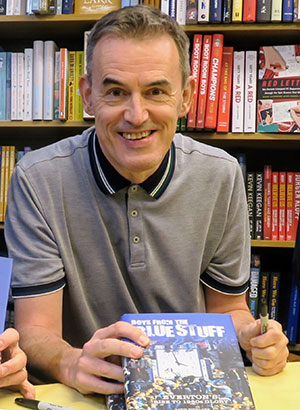
Gavin Buckland with his earlier book on Everton in the 1980s, Boys from the Blue Stuff
The book leads us inexorably to that fateful day in May 1994, with the Blues hanging onto their First Division status by the thinnest of threads, and the Crazy Gang coming up the M6 to cause chaos. The events of that match at Goodison Park and other stadiums around the country still give me the shivers, 30 years on. Against this backdrop, the Moores era was officially coming to an end, as rival bidders fought to buy the family’s shares in the wake of Sir John’s death in September 1993. Bill Kenwright’s consortium thought it had the edge but, ultimately, Wirral businessman and Tranmere Rovers’ saviour Peter Johnson won through. The Johnson era, and what followed it is another story, for another time – but I can’t think of a better person to narrate it than Gavin Buckland.
Full disclosure, I am in a publishing collective with Gavin Buckland, James Corbett and Simon Hart, so my opinion could be seen as being less than impartial – therefore people should reach their own conclusions after reading The End. However, my personal view is that it is a fitting final chapter of a trilogy spanning 34 years in which Everton, turbocharged by John Moores and his organisation, changed the face of English football, but ultimately found itself on the hard shoulder as others powered into the Premier League fast lane. You may not agree with every well-argued point put forward, but nowhere else will you find such a detailed and thought-provoking analysis of the Blues’ journey from the Mersey Millionaires to mediocrity.
The End: From Glory to a Whole New Ball Game. Everton 1985-1994, written by Gavin Buckland, is published in softback and hardback by Toffeeopolis, an imprint of Mount Vernon publishing. It can be purchased from the publishers at this link, via other online retailers, plus through your local bookstore.
Rob Sawyer
Reader Comments (15)
Note: the following content is not moderated or vetted by the site owners at the time of submission. Comments are the responsibility of the poster. Disclaimer ()
2 Posted 07/12/2024 at 22:02:06
Brendan, you answered your own question.
3 Posted 07/12/2024 at 22:11:52
Perhaps you are correct but I think there's a difference between competing in European competitions and managing in Europe.
4 Posted 08/12/2024 at 11:05:48
It set a pattern that has continued to spiral downwards with woeful Kenwright era and now Moshiri.
I am hoping this book is in the Christmas stocking - the previous two have been excellent additions to my Everton bookshelf - well done to all involved.
5 Posted 08/12/2024 at 11:30:02
Knowing we would turn up expecting to win in 84-85 and that we would be Champions.
The disappointment of 85-86. We changed our style to suit Lineker. Now admittedly, he knew where the net was, but wasn't a great footballer in my opinion.
The forgotten champions of 86-87. As much as I loved that 84-85 side, the second title was arguably Howard's best achievement, patching up the team and steering them to win the league.
Then it went downhill. Then the impact of events took hold as we lost players to clubs that could offer European football and obviously Howard himself.
Seven years later, we miraculously survive on the last day of the season.
Aside from Joe Royle's brief offer of hope, the decline had set in.
6 Posted 08/12/2024 at 12:05:41
Instead of a measured approach, Margaret Thatcher imposed a blanket ban on all English clubs competing in Europe and seeing we were Champions that meant we were expelled from Europe's top competition through no fault of our own.
I well remember switching on the TV to watch the game only to see Ian St John who was the presenter of the programme stating the game had been delayed because of Liverpool fans charging towards Juventus fans and some deaths and injuries being reported.
They later interviewed John Smith the Liverpool Chairman who said this wasn't caused by Liverpool fans but the National Front had infiltrated into the Liverpool section and it was those that caused the trouble. Obviously complete nonsense as no proof ever came to light about the National Front being involved.
The ban that Thatcher imposed on all of English football meant that our players wouldn't be experiencing European football for the next 5 years. So Gary Sevens and Trevor Steven went to Rangers who weren't banned and Howard moved to Spain.
I could never understand why Everton didn't get an agreement that irrespective of where they finished, that they would automatically get a spot in the European Cup when English clubs were allowed back in. We have never recovered from that setback and wonder if we will ever get back for challenging for the top honours ever again.
7 Posted 08/12/2024 at 14:54:23
Interesting that players got pissed off relatively easily despite success hinting or asking for transfers.
It furthers my suspicion Howard Kendall shipped out in some part because he lacked the conviction he could maintain what he had created. The cracks were beginning to show and his early evisceration by fans had never truly left him according to the piece. Possibly he thought "I'm not going through that shit again" and snook off to Spain...
This stuff dwarfs tactics and substitutions and it's a factor fans are clueless about but still blame the manager anyway. It's hilarious.
The other stuff about the board confirms what many felt, ie, Philip Green et all were Colonel Blimp duffers drifting around Goodison barely aware of reality.
The amateurism of this club goes back a long, long way.<
9 Posted 08/12/2024 at 16:39:51
All English clubs were banned from Europe in 1985. Yet our reaction as a club seemed to reflect a greater sense of self-pity coupled with complacency. Regaining the title in 1987 in spite of a plethora of injuries and the deployment of several makeweight players made everything seem too comfortable for the club's hierarchy. Thus in the summer of 1987 while our neighbours were strengthening with the signings of Barnes, Beardsley and Aldridge we did nothing. Colin Harvey's first signing was not until the autumn when Ian Wilson, a journeyman's version of Kevin Sheedy arrived.
The conservative (with a small c) manner of the club's management was mirrored by the lack of a coherent strategy for the development of a stadium which was already outdated in the late '80s. Piecemeal adaptations were made at a time when radical thinking was required. The overall lack of direction between 1987-94 made the long-term decline in our fortunes inevitable.
11 Posted 08/12/2024 at 16:46:41
I do wonder when his drinking problem actually first started?
12 Posted 08/12/2024 at 17:43:32
13 Posted 08/12/2024 at 23:46:23
I was smitten, would've creamed meself in '66 had I been able to aged 11, worshipped the team for years and years to come but...
We got rid of Alan Ball, then Catterick, signed Belfitt, sold Johnson and Kendall but signed Clement, Harper (Joe that is!) and Bingham, and then Lee as managers.
In short, with a shite board (and we've almost always had shite boards, especially since the Premier League began) we were in decline from 1970 onwards except for three mid-'80s years the legacy of which was robbed from us by Heysel and the Thatcher-advised Everton chairman Sir Philip Carter. ("Sir" my arse!)
What followed, as per the new book subject of this thread, is very well understood by anyone of my age with a deep adherence to reality and blame.
You know who I mean folks!
14 Posted 10/12/2024 at 15:47:01
Bliss it was in that dawn to be alive/But to be young was very heaven.
I was young(ish), was starting out in my career, and had started courting my wife to be (38 frigging years now!).
I feel ever so slightly lucky.
15 Posted 10/12/2024 at 15:53:33
"I feel ever so slightly lucky."
Me too. I got to see it with my old man and share a special time. The highlight for me and my son was the Iwobi scoring against Newcastle when the Just stop oil gut cable tied himself to the post.
16 Posted 11/12/2024 at 01:05:59
First game as a 15-year-old was the Wayne Clark 40-yard lob at Highbury, picked a good game as RS lost at home to Wimbledon that day, then went to Villa away with around 10,000+ Evertonians everywhere.
Then the slow demise started, Harvey bought some new players in... I remember Cottee's debut v Newcastle very well, what a game... then Coventry away another win and the best goalkeeping performance I've ever seen by big Nev, I'm sure anyone there won't forget it.
Every year just got worse after that, Leeds at home first game of the season, fans on the pitch having a go at players.
I was at the Wimbledon game... pure elation on the day but the reality of how far the club had sunk in 7 years was very depressing… and has it got any better since then? Not really… apart from the 1995 FA Cup win.
17 Posted 18/12/2024 at 22:47:26
Why there was no such trouble in Rotterdam, of course it was not their fault, it was not their fault some fans trying to climb the fences were met with tear gas by the French police a few years back, but they got an apology and blameless for ticketless fans trying to get in.
As the saying goes never their fault, offended by everything, ashamed of nothing, just ask those wearing Suerez shirts in the warm up backing him against racism.
Add Your Comments
In order to post a comment, you need to be logged in as a registered user of the site.
Or Sign up as a ToffeeWeb Member — it's free, takes just a few minutes and will allow you to post your comments on articles and Talking Points submissions across the site.
How to get rid of these ads and support TW

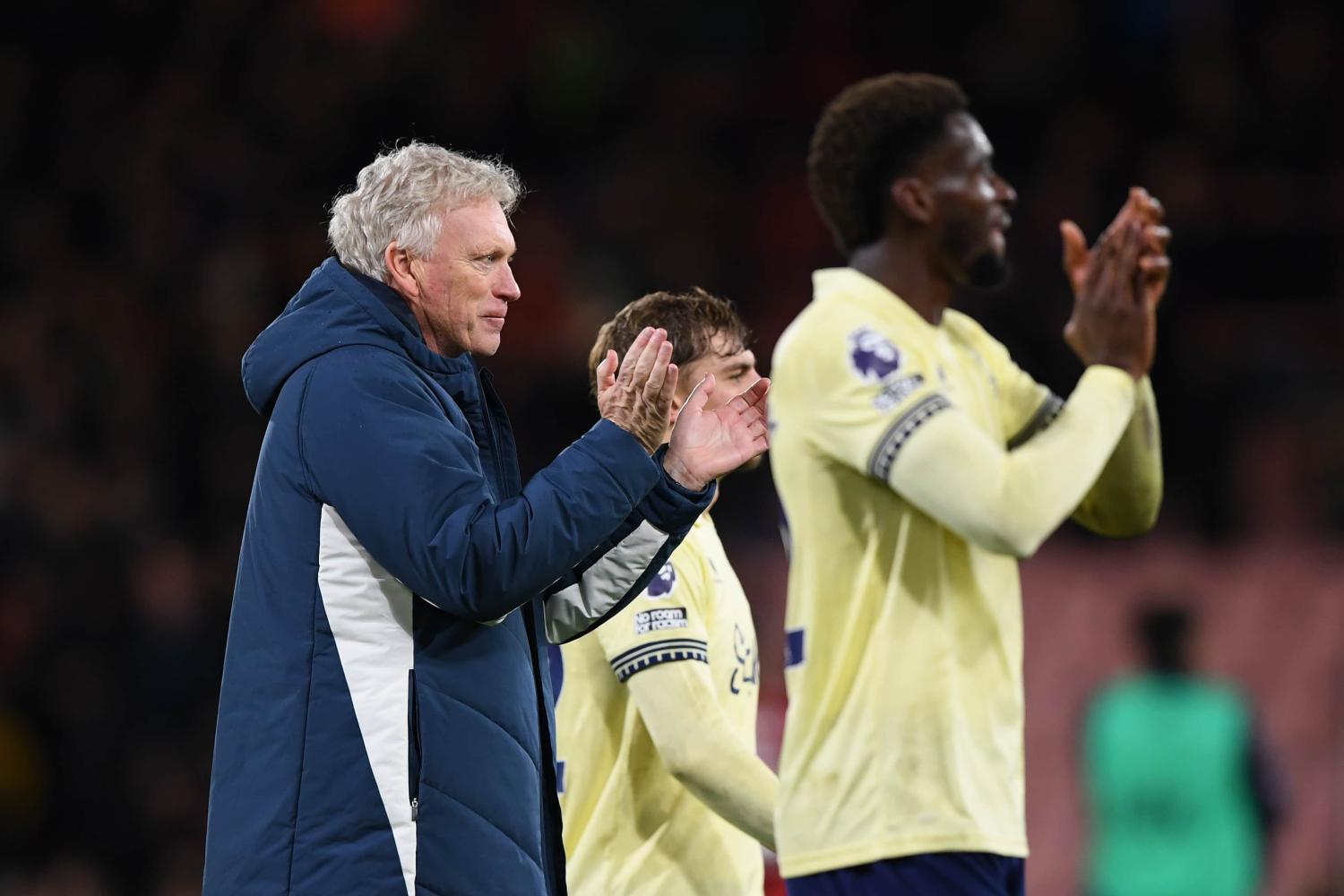
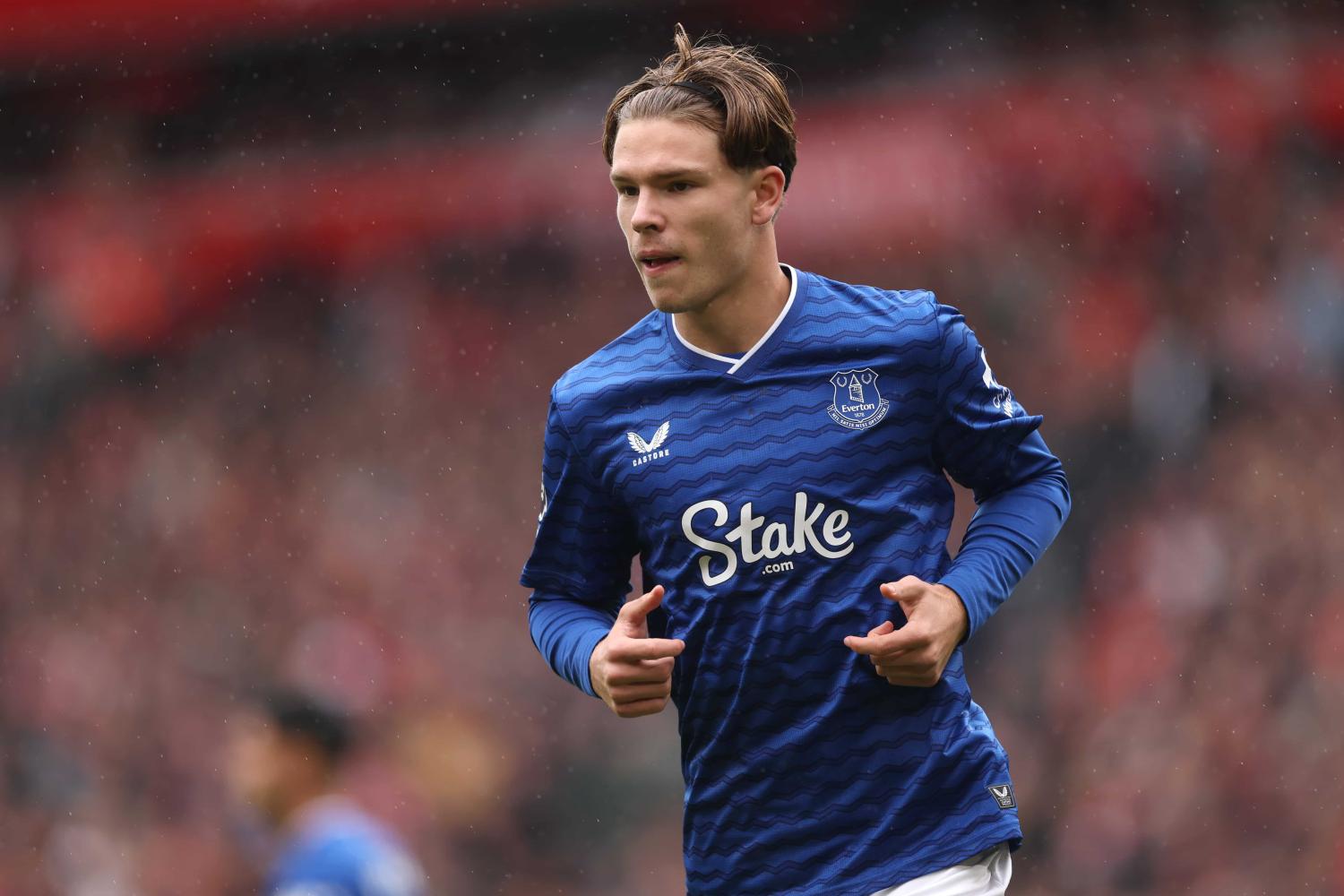

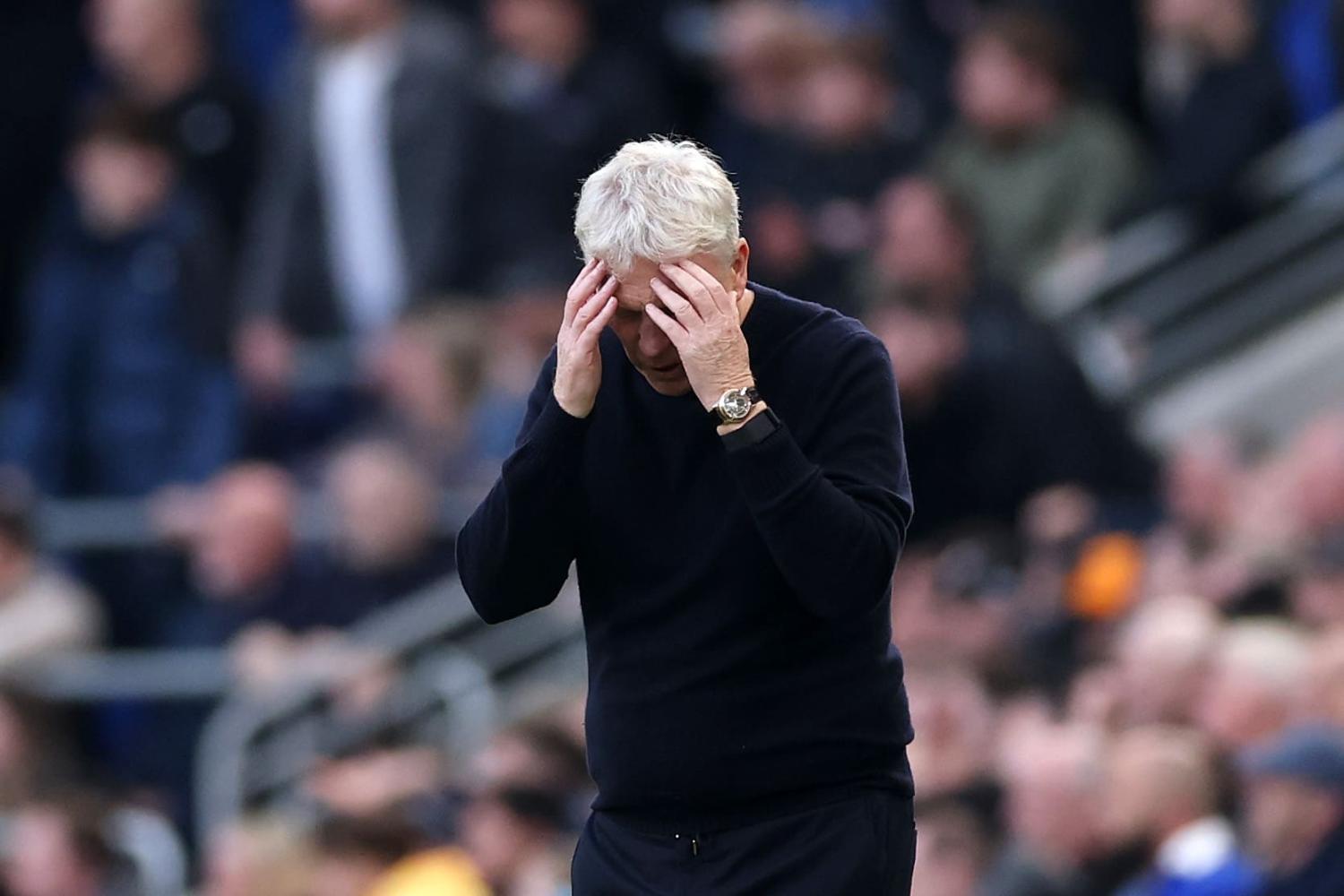
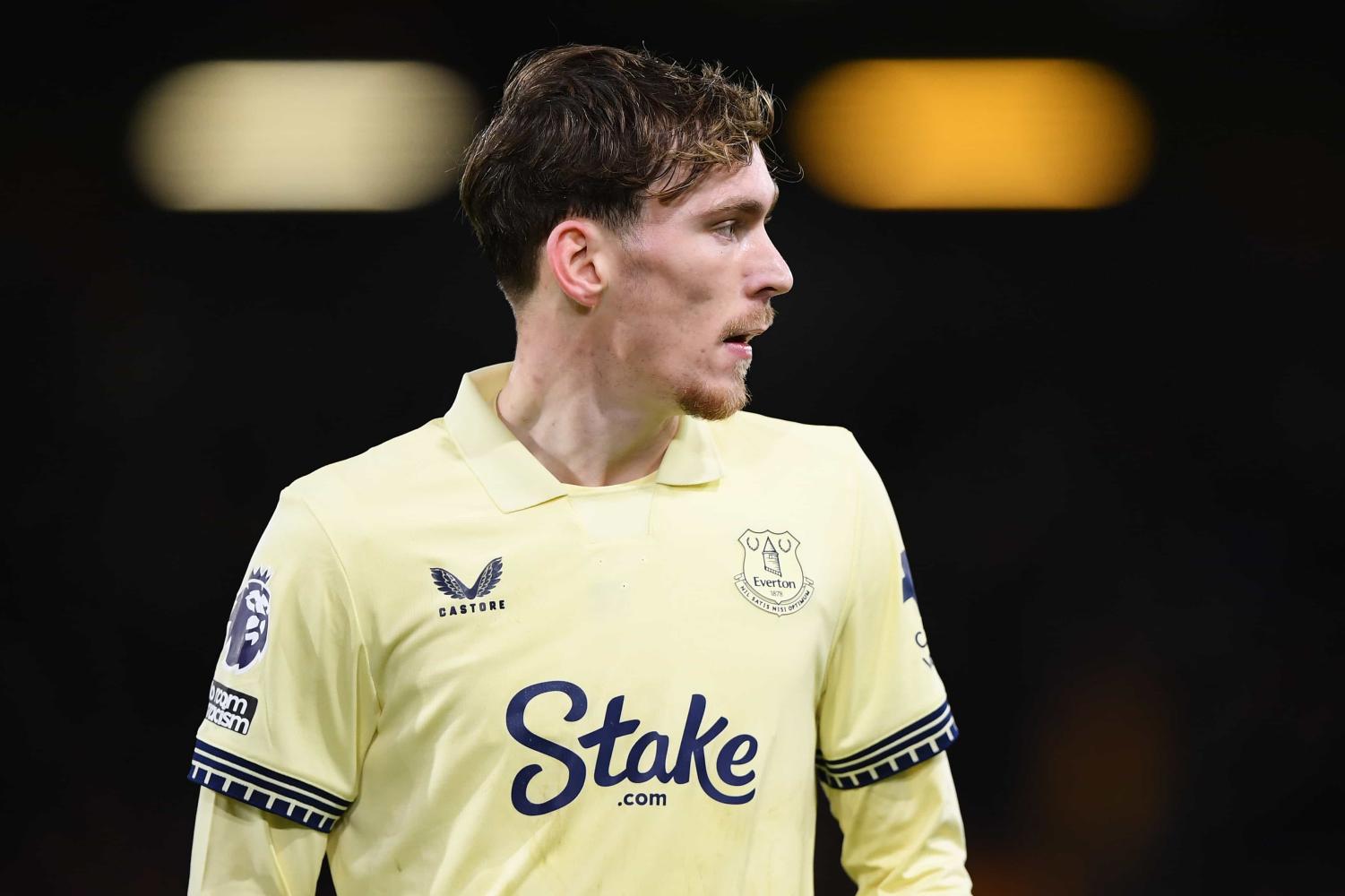
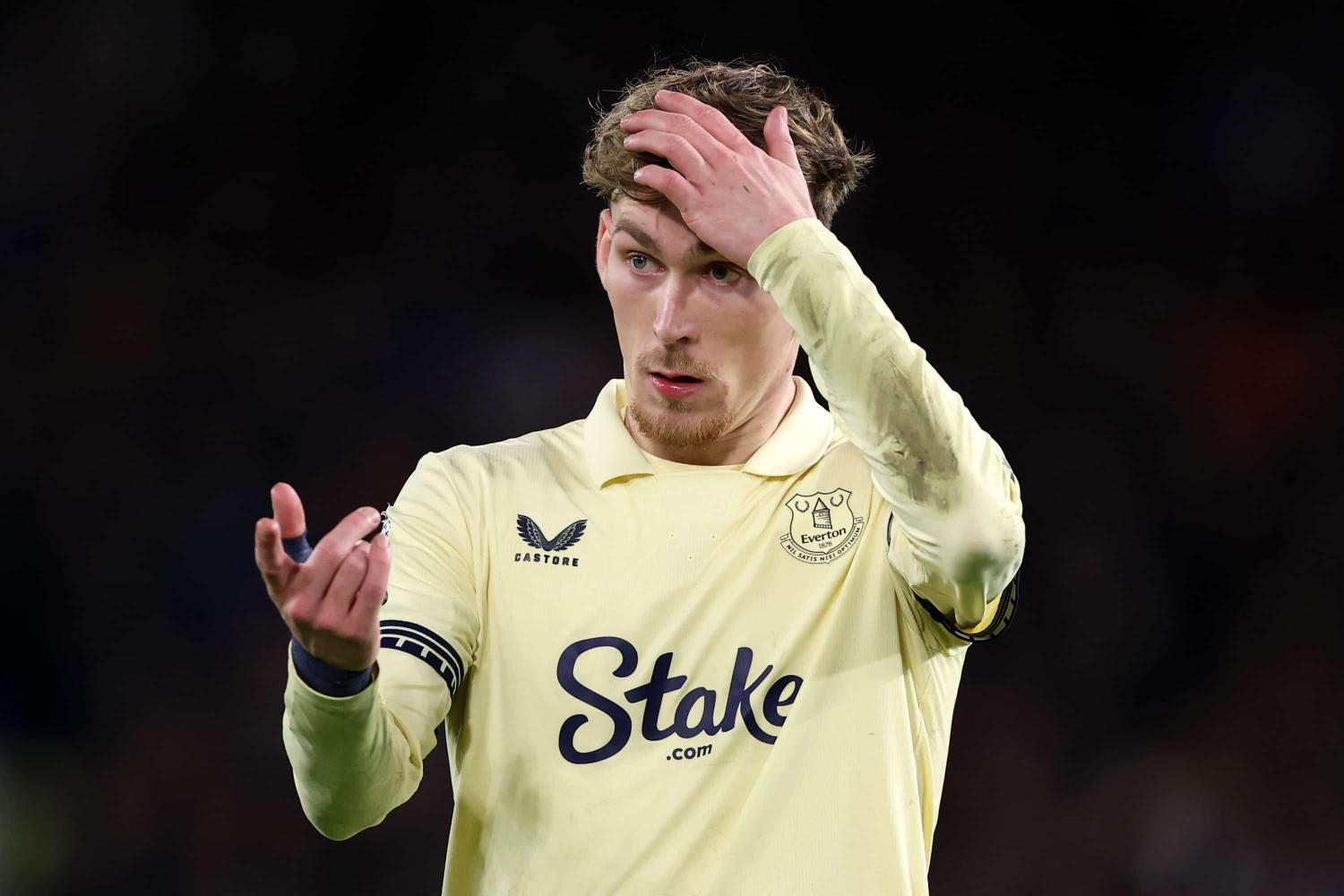
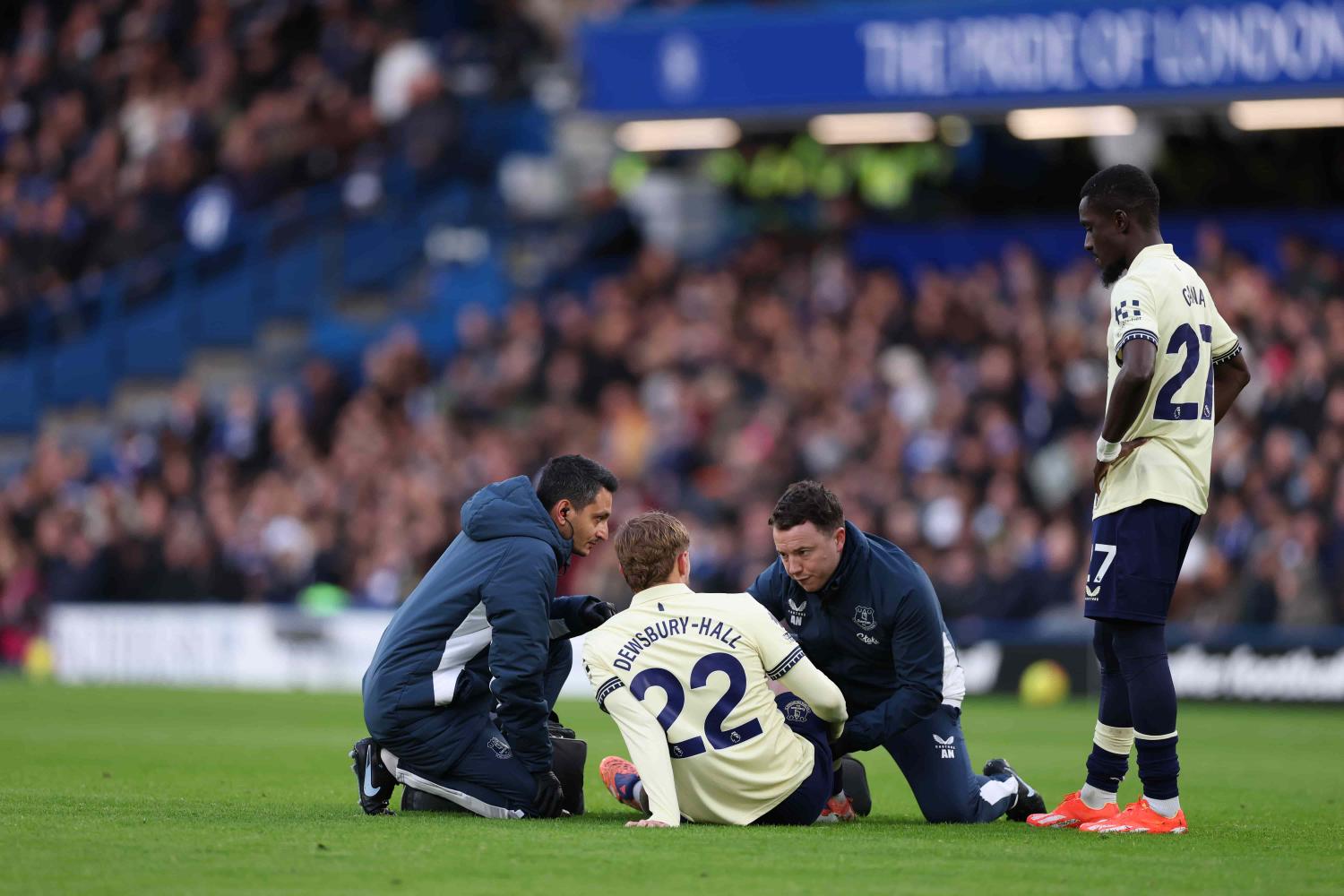
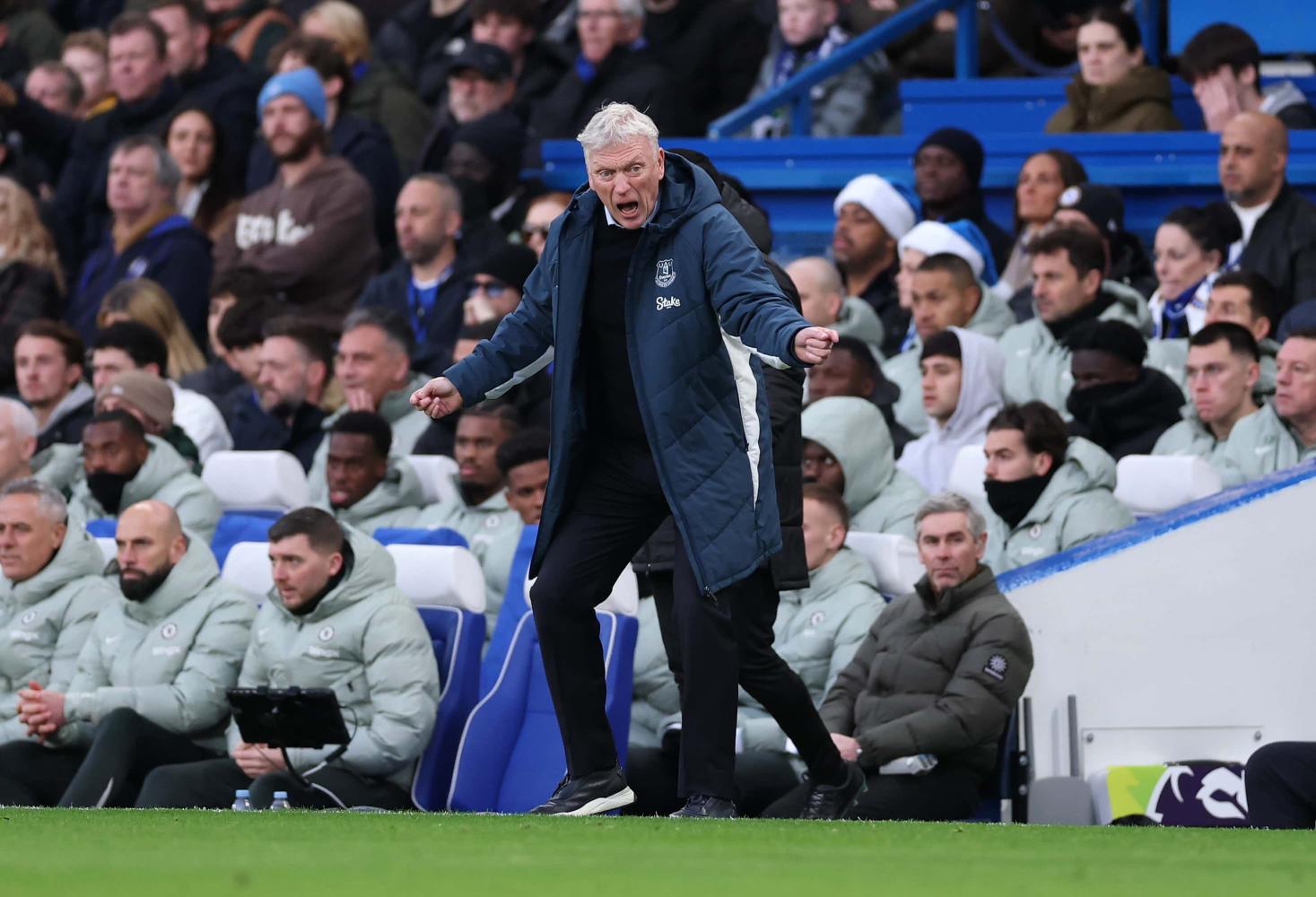


1 Posted 07/12/2024 at 21:47:00
Surprising that the more generally accepted reason for Howards departure... the European ban... doesn't feature as one of the probable reasons.